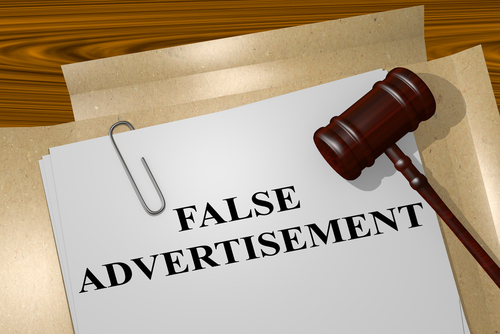Now Reading: Affiliate Marketing Programs That Pay Per Click: Legal Issue Of Online Advertising
-
01
Affiliate Marketing Programs That Pay Per Click: Legal Issue Of Online Advertising

Affiliate Marketing Programs That Pay Per Click: Legal Issue Of Online Advertising
Placing advertisements online can give you the opportunity to generate a good income. While there’s nothing wrong about having ads on your website, it’s essential to be wary about those advertisements that can bring you on the wrong side of the law, which can be a source of immense stress and anxiety. If you’re an advertiser, it’ll be beneficial if you do an ad campaign that’s free from any legal issue.
Read on this article to learn more about the legal problems of online advertising that you should be aware of.
- False Advertising – Most companies will try to advertise and sell their products to a wide array of customers by highlighting the benefits of the items they offer. However, businesses are aware that they can’t easily make any claim or statement about their products without violating the law. After all, the claims they make serve as a statutory warranty that customers rely on when they purchase. Thus, these statements should be correct, complete, and accurate in all instances.

If you’re doing false advertising, you’ll more likely face legal trouble and can bring you to court. Hence, it’s essential to avoid erroneous claims if you don’t have hard data to back it up.
Also, let your attorney check your product descriptions before posting them on your site. If you want to know more about online advertising without disrespecting the law, find time to read Journal-Review for additional information.
- Keyword Spamming – In the world of business, most companies use a registered trademark to distinguish their products from the rest. That said, you also want to use that trademark as a keyword so people who are searching the mark will find your website first. However, believe it or not, you may face legal claims if you don’t pay attention to the type of keywords you’re using. Keyword spamming is a legal issue that you should be wary of as an online advertiser. A keyword spammer is a person who utilizes your trademark to outbid you and keep customers away from you.
Once you find out you’re keyword spammed, make a complaint so that the search engines will immediately take the spammer’s listing out. However, it’ll be for your best interests if you file a legal action against the spammer to stop their unlawful doings.
- Click Fraud – When it comes to search engine advertising, you pay a certain amount of money to a search engine every time people search a keyword and click the link to your website. Unfortunately, you may end up having legal problems due to click fraud. When someone who wants your business to fall down repeatedly clicks on your ad listings without the intention of buying to increase your bill, beware as it can be an indication of click fraud.
To avoid this illegal act, make sure you know the search engine’s click protection system and what they can do to prevent and remove fraudulent clicks from your account. Additionally, it’s a smart idea to register your site with a pay-per-click auditing service to stay away from potential fraudsters.
- Illegal by Region – Advertisements for online sports gambling and casino can be a rewarding source of income. However, you need to keep in mind that gambling isn’t legal in all parts of the world. In the United States, particularly in the state of Nevada, sports gambling is actually legal. That’s why if you have sites intended to serve a local area, be sure the advertisements you place on them are not illegal in that place and in any other parts of the country you’re serving. Otherwise, you’ll find yourself facing legal issues due to online advertising.
- Age Restriction – Another type of ads that prove to be lucrative is that of the porn industry. While you can earn billions of dollars here, it’s still subject to regulation by law. When it comes to these types of advertisements, age restrictions come into play. If you have sites which are more likely to be visited by minors, you can’t just show ads with adult content on it, or else you’ll be sued in court.
Conclusion
Before running an ad campaign, it’s best to check whether it’s legal or illegal in the area you’re serving. By keeping these legal issues in mind, you’ll be able to get the most out of online advertising without having to worry if you violate the law or not. In the business landscape where competitors are waiting for your downfall, it’s always better to be safe from legal problems than being sorry afterward.








